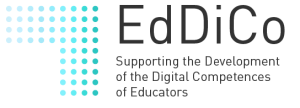A Collaboration & Learning Environment to Enable to be a University Leader in Education Innovation
Delft University of Technology was founded 176 year ago as an engineering school. It is a traditional brick-and-mortar university in engineering, science and design with 24,000 students on campus. In 2014 the executive board embraced the online learning development and started the innovation programme on open and online education (TU Delft, 2014). The objectives of the programme are to educate the world and enhance the quality of education (for both the online and campus programmes). This new programme combined with the changing needs in campus education required a new learning management system (LMS) that is both flexible and stable in a rapidly changing world.
Part of enhancing the quality was selecting a new LMS for both our campus and online students. TU Delft was using Blackboard since 1999 and it was time for a change. In the preparation for the European tender process we organized pilots with some of the popular platforms in the market to use that experience in formulating our tender document. Three important lessons we learned from this:
• The implementation is much more important than the system.
• We need a system that is not only easy to use, but also very advanced in its capabilities.
• We should look for a partner that will work together with us to enhance our education.
For the tender we used a Best Value Procurement, which is a new method of tendering. Instead of listing all your requirements, you describe your vision, mission, strategy and conditions and the suppliers are asked to come up with their best possible solution. Desire2Learn with the Brightspace Learning Platform delivered the best proposal. As Ovum (Johal, 2016) concluded Brightspace is the #1 LMS for next-generation online teaching and learning. As part of our project we decided to brand the system as Collaboration & Learning Environment (CLE) to emphasize the goal of the project. It is not about the management, it is about the collaboration between teachers and students and learning of students.

